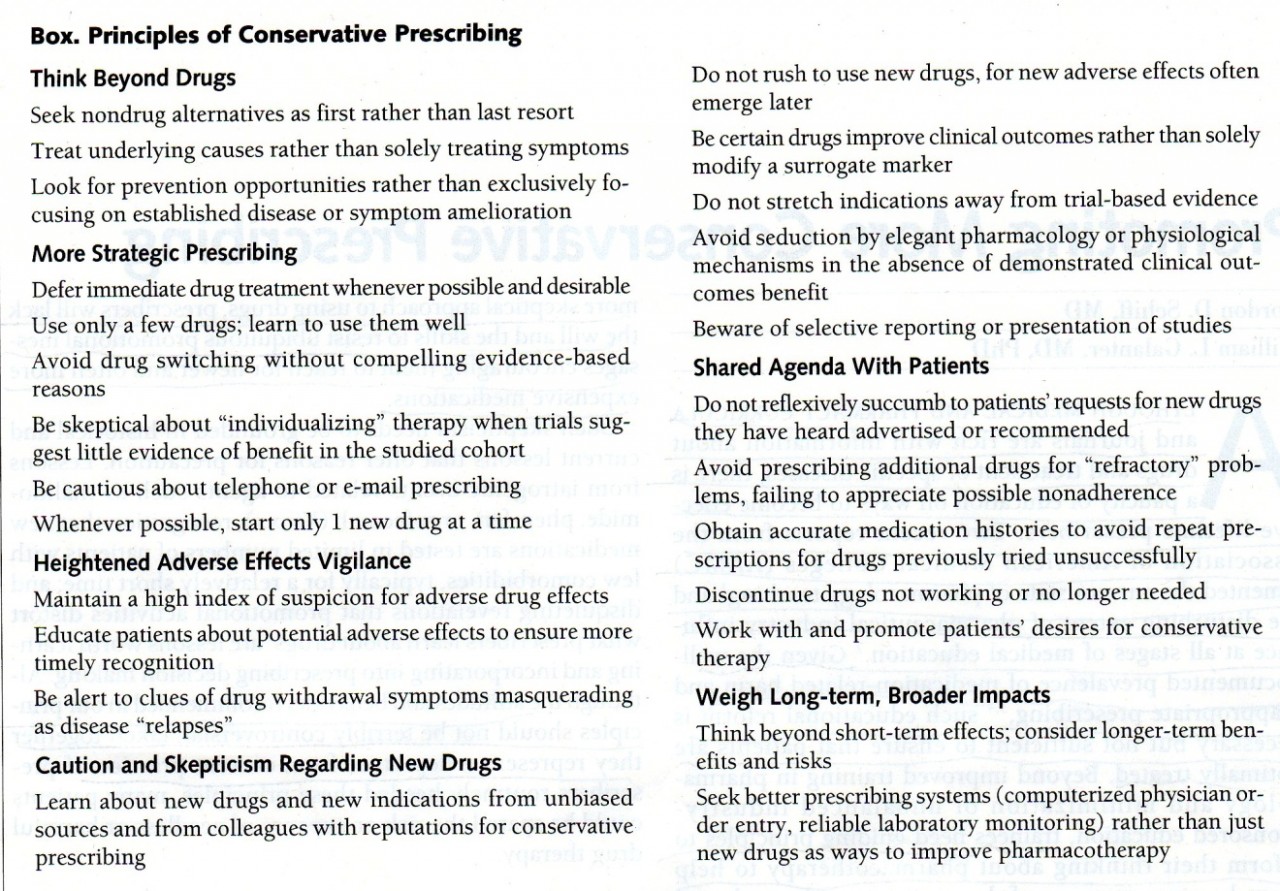These three articles may give you an integrative perspective on prescription drugs. All statements are direct quotes by rather conservative, mainstream doctors who have published their ideas and research in the Journal of the American Medical Association.
“Reducing adverse drug events-the need to rethink outpatient prescribing,” JAMA 2016;316:2092
- “Gains in life expectancy in the USA are being eroded at least in part due to the use and misuse of prescribed medications.”
- “Adverse health outcomes due to prescribed medications are broader than previously thought.”
- “Patients often receive prescriptions from multiple clinicians.”
- “In this fragmented health care system, clinicians often hesitate to discontinue medications because of lack of familiarity with the medication or patient.”
- “More than ten percent of individuals in the USA are prescribed five or more medications… It is virtually impossible to take five medications exactly as prescribed.”
- “Changes are needed across the US health care system to assign the role of primary responsibility to a single clinician… The question remains how to best leverage the existing system to improve the safety of starting, monitoring, and discontinuing medications.”
“Pharmaceuticals and Public Health,” JAMA 2016;316:2083
- “The national debate over increasing costs and spending for pharmaceuticals has reached a fever pitch.”
- “One option is for the federal government to allow a subset of payers to join together, commit to a broad treatment strategy as part of a public health campaign, and obtain lower prices.”
- “An alternative option is for the federal government to conduct the price negotiation and purchase large quantities of the pharmaceuticals.”
- “A third option is more aggressive: the government can use its own facilities or commission other manufacturers to make the pharmaceutical without regard to the manufacturer’s patents. This is a type of ‘eminent domain,’ in which the government takes private property for public use and compensates the property owner at a reasonable rate, but at a rate that can be much lower than the price set by the manufacturer.”
The article below requires more effort. If you have concerns about your prescribed drugs you must read it, too.
“Promoting More Conservative Prescribing,” JAMA 2009;301:865
- “Although medical and pharmacy curricula and journals are rich with information about drugs and treatment of specific diseases, there is a paucity of education on ways to become effective lifetime prescribers. Two recent reports from the Association of American Medical Colleges (AAMC) lamented the current state of pharmacology teaching and the disturbing extent of pharmaceutical industry influence at all stages of medical education. Given the well-documented prevalence of medication-related harm and inappropriate prescribing, such educational reform is necessary but not sufficient to ensure that patients are optimally treated… trainees need guiding principles to inform their thinking about pharmacotherapy to help them become more careful, cautious, evidence-based prescribers.”
- “These lessons are fundamental for teaching clinicians how to develop excellent prescribing skills, yet such fundamentals are absent or underempahsized in current medical pharmacy education… they also need to be taught a set of skills and attitudes that will help them approach claims for drugs, especially new drugs, more critically.”
- “Without a more cautious and more skeptical approach to using drugs, prescribers will lack the will and the skills to resist ubiquitous promotional messages encouraging them to reach for newer and often more expensive medications.”
- “Although the attitudes and behaviors recommended in our principles [see box below] should not be terribly controversial, taken together they represent a departure from current practice.”

- “From the founder of modern medicine Dr. Osler to leading pharmacology textbooks, taking a more skeptical and conservative approach to pharmacotherapy has a long and honorable history in medicine… Rather than therapeutic nihilism, the approach of these guidelines aims to better respect the limitations of knowledge and more closely align clinicians with the interests of patients.”


